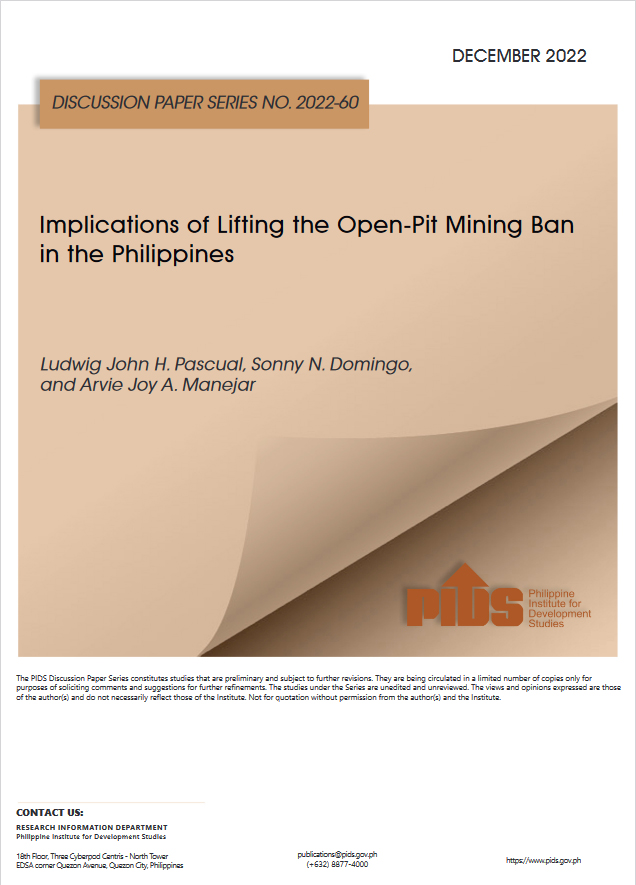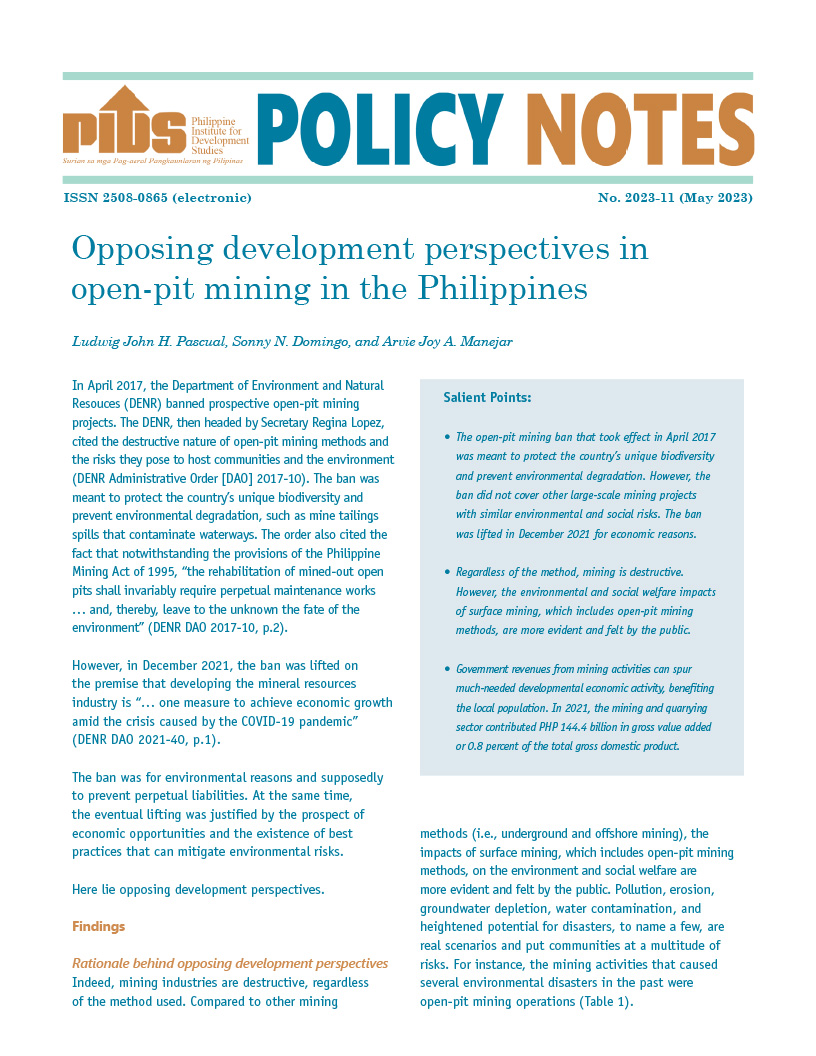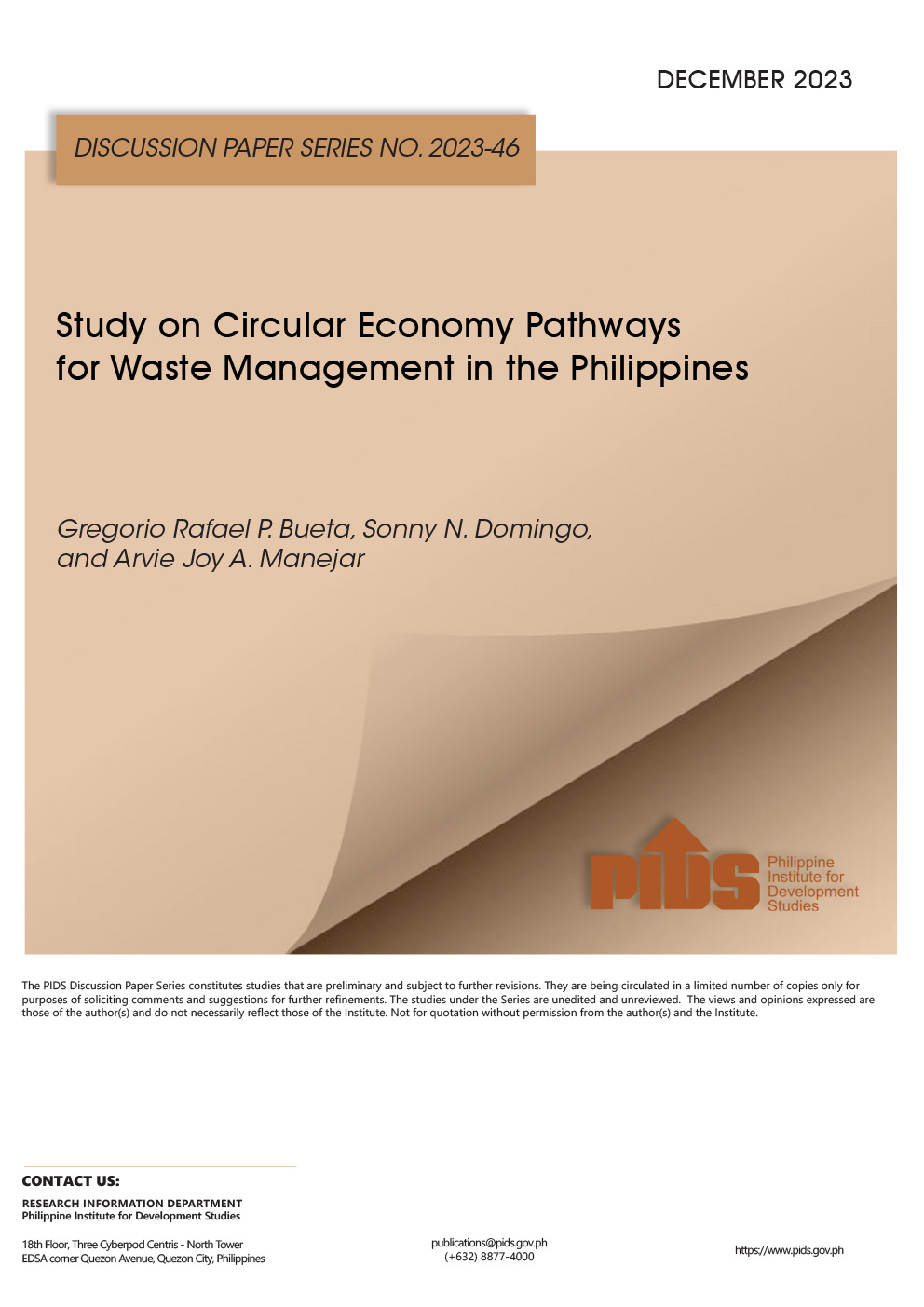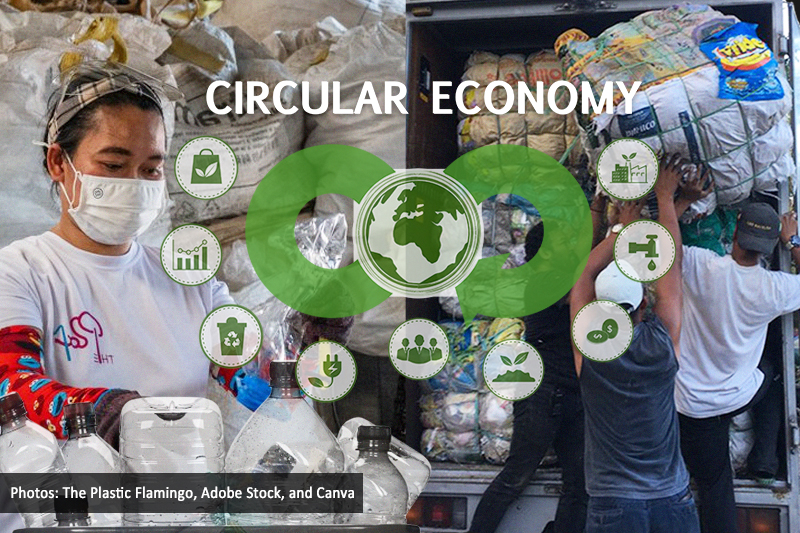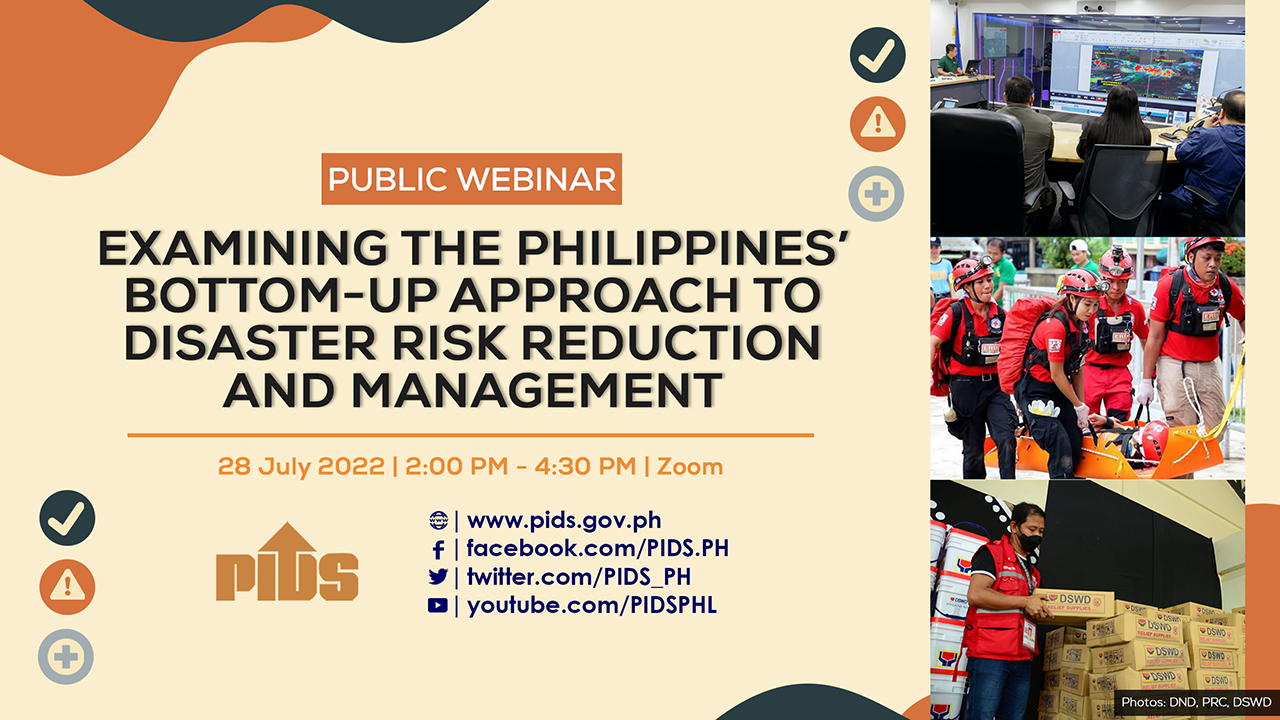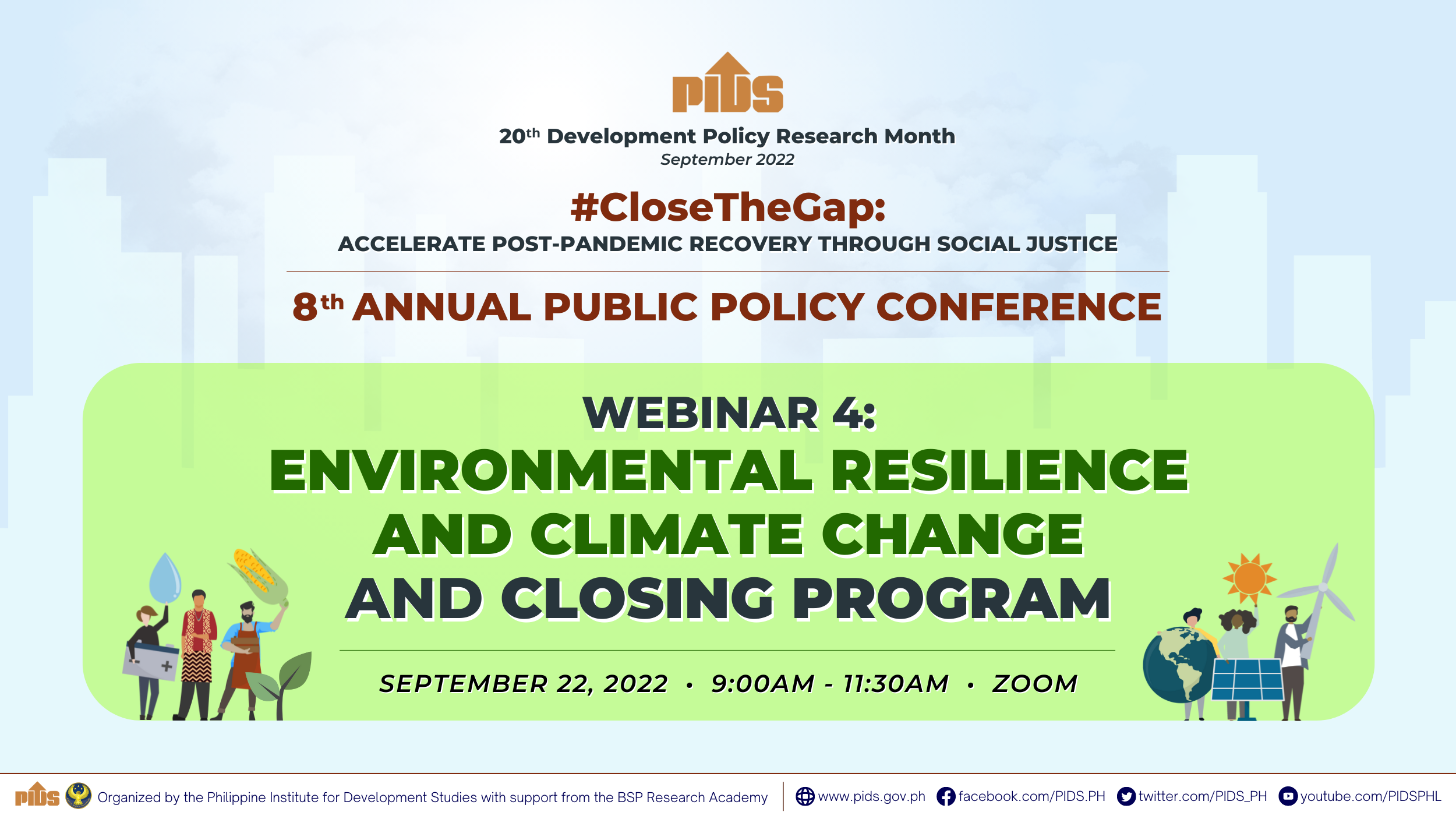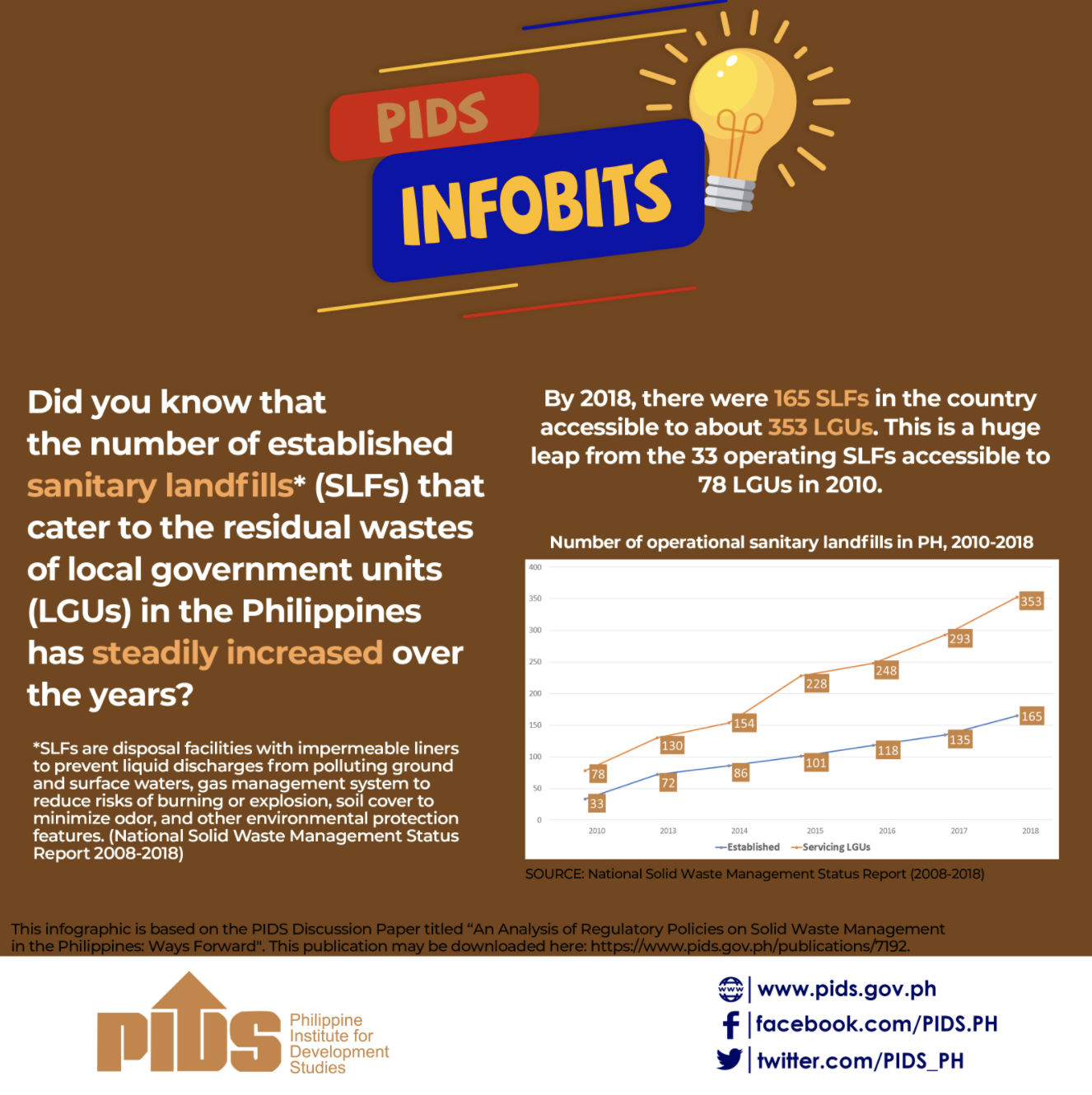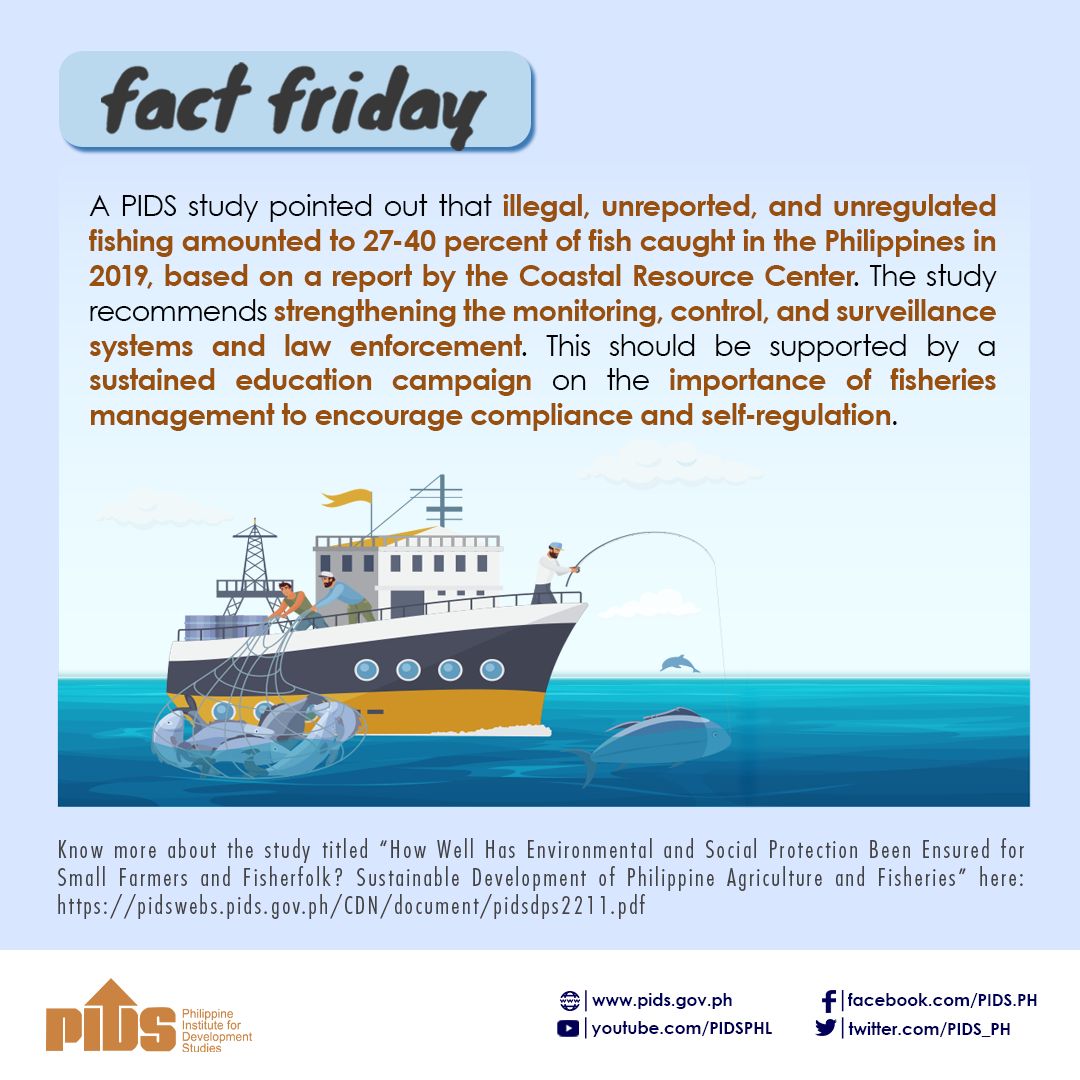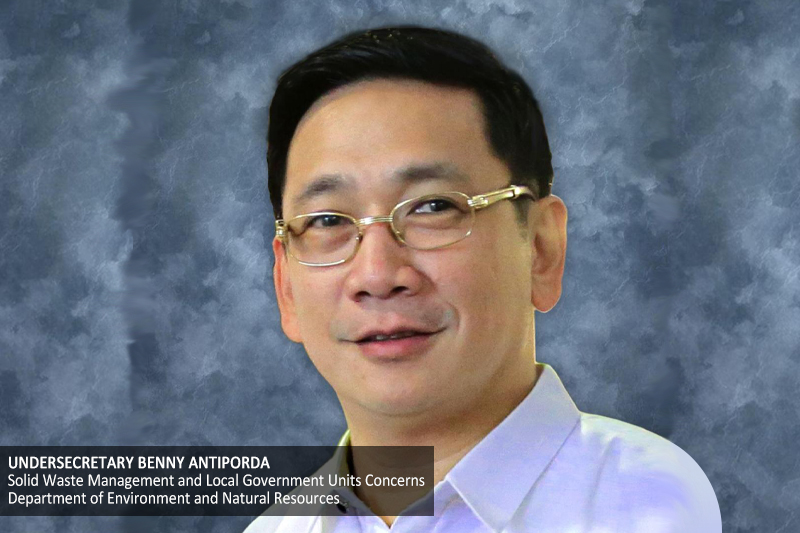
The implementation of sanitary landfills in the country has not been successful due to limited funds, according to Department of Environment and Natural Resources (DENR) Undersecretary Benny D. Antiporda during a webinar conducted by state think tank Philippine Institute for Development Studies.
“It was because of budgetary constraints that sanitary landfills were never successful. In some places, it was successful, but in majority areas of the country ay talaga pong hindi man lang ito naumpisahan,” he admitted.
To help local government units (LGUs) with no waste disposal facilities, the DENR promotes the ‘clustered sanitary landfill operation system’ wherein adjacent LGUs share a single sanitary landfill.
Antiporda urged the government to play an active role in designing and financing mandated sanitary landfills.
He also encouraged the private sector to participate by providing services on waste management, particularly the establishment and operation of a sanitary landfill.
Another issue pointed out by Antiporda is the lack of retention of technical officers in LGUs as the Local Government Code of 1991 does not mandate the creation of city and municipal environment and natural resources offices.
He said the National Solid Waste Management Commission has already recommended to LGUs the inclusion of the city or municipal environment and natural resources officers in the financial component of their 10-year solid waste management plans.
The DENR official is also optimistic that the Mandanas ruling could resolve the lack of investments and financial resources at the LGU level.
“The Mandanas ruling would reshape the landscape of LGUs. Although they are expected to assume additional responsibilities, [its implementation] could provide [them with] additional resources for solid waste management,” he said.
Meanwhile, Antiporda proposed that vertical institutional alignments in government be revisited and strengthened as “national and subnational connections appear weak.”
He also urged the national government to “go beyond its oversight functions in policy grounding” and for provinces to “truly integrate the plans and programs of their covered cities and municipalities”.
Moreover, he emphasized that barangays must be capacitated and empowered to contribute and not be dependent on municipal prodding. ###
You may watch the webinar at https://www.facebook.com/PIDS.PH/videos/1093597981167263. For more videos of PIDS events, go to https://www.pids.gov.ph/videos.
“It was because of budgetary constraints that sanitary landfills were never successful. In some places, it was successful, but in majority areas of the country ay talaga pong hindi man lang ito naumpisahan,” he admitted.
To help local government units (LGUs) with no waste disposal facilities, the DENR promotes the ‘clustered sanitary landfill operation system’ wherein adjacent LGUs share a single sanitary landfill.
Antiporda urged the government to play an active role in designing and financing mandated sanitary landfills.
He also encouraged the private sector to participate by providing services on waste management, particularly the establishment and operation of a sanitary landfill.
Another issue pointed out by Antiporda is the lack of retention of technical officers in LGUs as the Local Government Code of 1991 does not mandate the creation of city and municipal environment and natural resources offices.
He said the National Solid Waste Management Commission has already recommended to LGUs the inclusion of the city or municipal environment and natural resources officers in the financial component of their 10-year solid waste management plans.
The DENR official is also optimistic that the Mandanas ruling could resolve the lack of investments and financial resources at the LGU level.
“The Mandanas ruling would reshape the landscape of LGUs. Although they are expected to assume additional responsibilities, [its implementation] could provide [them with] additional resources for solid waste management,” he said.
Meanwhile, Antiporda proposed that vertical institutional alignments in government be revisited and strengthened as “national and subnational connections appear weak.”
He also urged the national government to “go beyond its oversight functions in policy grounding” and for provinces to “truly integrate the plans and programs of their covered cities and municipalities”.
Moreover, he emphasized that barangays must be capacitated and empowered to contribute and not be dependent on municipal prodding. ###
You may watch the webinar at https://www.facebook.com/PIDS.PH/videos/1093597981167263. For more videos of PIDS events, go to https://www.pids.gov.ph/videos.

